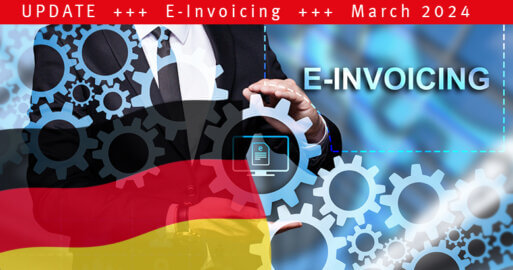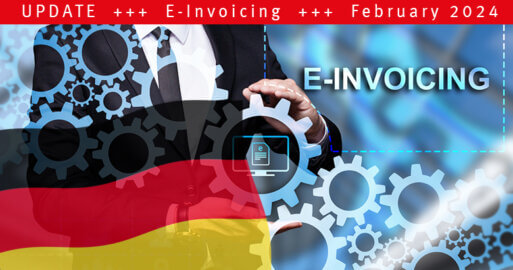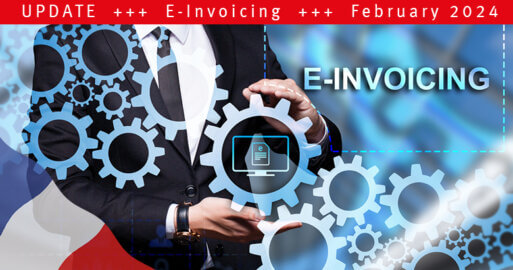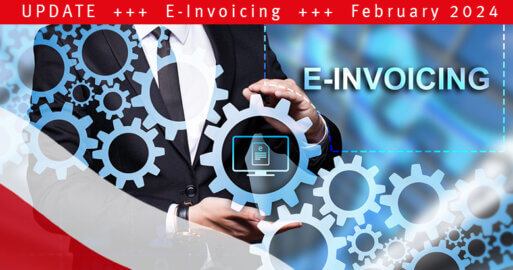E-Invoicing in Croatia via PEPPOL as of 1 July 2019
 In Croatia, OASIS UBL 2.1 is recognized and expected as a format for electronic invoices to the federal government.
In Croatia, OASIS UBL 2.1 is recognized and expected as a format for electronic invoices to the federal government.
PEPPOL is the technological basis for public e-procurement in the EU – and is also a good (but not the only) option for e-invoicing in Croatia. In many EU countries, PEPPOL is introduced increasingly. Please read our blog for an introduction to PEPPOL
Croatia requires B2G e-invoicing as of 1 July 2019
According to the EU Directive 2014/55 B2G e-invoicing has to be introduced throughout the EU. Croatia was one of the first countries to meet the deadline and requires Business-to-Government (B2G) e-invoicing by 1 July 2019. At the beginning of 2018, the Croatian government submitted a law on electronic invoices for public procurement to Parliament and the directive 94/2018 was approved on October 17, 2018. The deadlines of the mandate are as follows:
- Since 1 December 2018, all contracting public authorities have been obliged to receive electronic invoices.
- From 1 July 2019, all suppliers will be obliged to issue only electronic invoices to contracting authorities.
How is the invoice data transferred?
The Financial Agency (FINA) is a central information intermediary which carries out the service of receiving and sending electronic invoices and accompanying documents between suppliers and contracting authorities in accordance with the European Standard (EN). FINA is a PEPPOL AccessPoint (recipient) and accepts electronic invoices according to EN 16931-1, i.e. OASIS UBL 2.1 or CII.
The central platform is ready to accept electronic invoices, but not all public authorities are connected to FINA yet, which means that the process of connecting authorities to the platform is still ongoing. The use of the central FINA B2G platform applies to public purchasers, publishers of electronic accounts for public tenders and information intermediaries offering electronic exchange of invoices and accompanying documents for public tenders.
SEEBURGER offers a ‘Plug-and-Play’ Cloud Service for Croatia, to which you can transfer the invoice data in a standard format. Our e-invoicing services are independent of the ERP system and include the archiving required by law in Croatia.
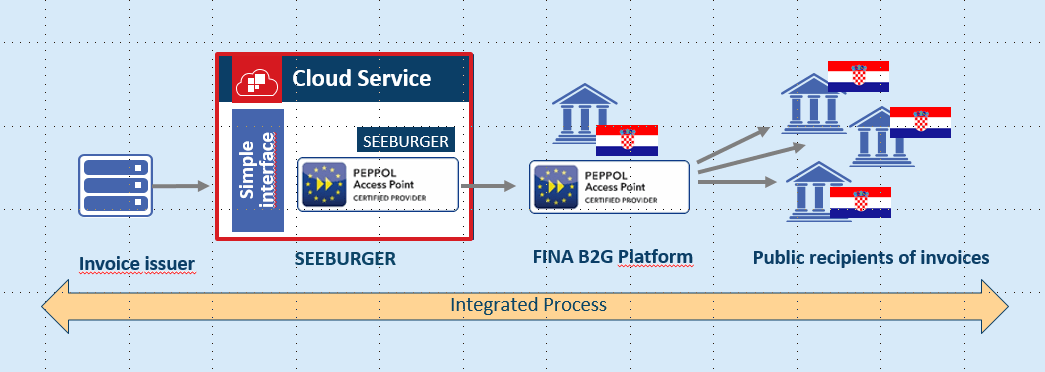
Figure: PEPPOL Process in Croatia
Can B2B invoices also be transferred?
The Financial Agency (FINA) is also able to send and receive electronic B2B invoices – as FINA has an additional platform for companies. For Business-To-Business (B2B) transactions only, the UBL 2.1 format based on PEPPOL BIS 3.0 is accepted. CII is not supported in the B2B scenario.
There is currently no proposal from the Ministry of Economy, Entrepreneurship and Crafts to make electronic invoicing mandatory for the B2B sector. However, developments in other countries give reason to believe that this is only a matter of time, in which it would be linked to some sort of VAT tax reporting.
Summary
We see a growing trend in countries such as Croatia to introduce PEPPOL in order to meet the requirements of the deadline for electronic procurement. Croatia is one of the few countries where infrastructure exists and is available before the EU deadline.
Despite increasing standardization, e-invoicing is and remains complex. The technical specifications are very different in each country and evolve at various speeds. It therefore makes sense to select a cloud partner for your e-invoicing projects who is familiar with the country-specific requirements and can fulfill them from a single source. The alternative is to implement and operate all this yourself, or to rely on individual local providers who, however, will also have to be managed individually.
In any case, PEPPOL e-invoicing and, if necessary, other formats must be mastered and connected simply and reliably to the respective ERP system which is holding the invoice data in question.
SEEBURGER Cloud Services can quickly and easily send EU-compliant invoices to authorities and other partners in Croatia via PEPPOL. The UBL 2.1 format is recommended, because the CII format is not supported on the B2B side, however one can use UBL as a standard for both directions.
Contact us if you need more information or if you want to arrange the changeover for Croatia in time.
Thank you for your message
We appreciate your interest in SEEBURGER
Get in contact with us:
Please enter details about your project in the message section so we can direct your inquiry to the right consultant.
Written by: Andreas Killinger
Andreas Killinger joined SEEBURGER in 2014 and is a product manager, responsible for EDI services and software applications. He specialises in SAP solutions, as well as electronic invoicing (e-invoicing) for globally active customers. Following an apprenticeship as an industrial mechanic and a degree in law and administration, he had various roles in the public sector. He then worked for IBM as an SAP Senior Consultant and SAP Project Manager in international SAP projects from 1999 to 2013.

